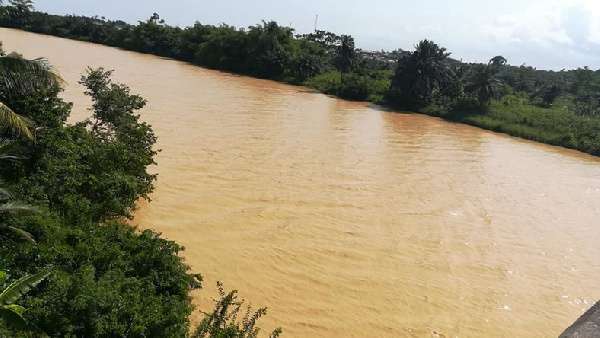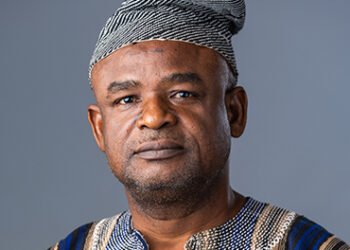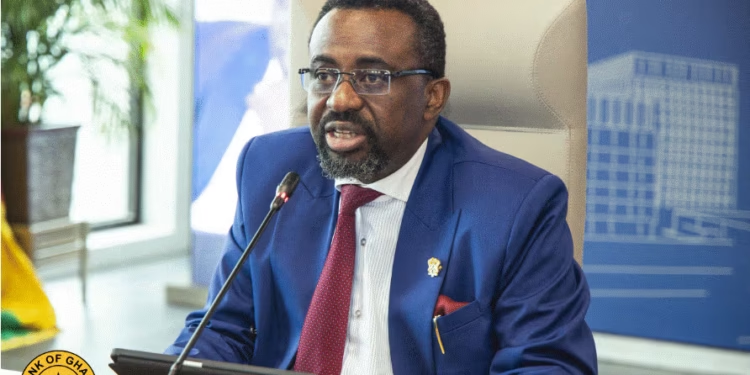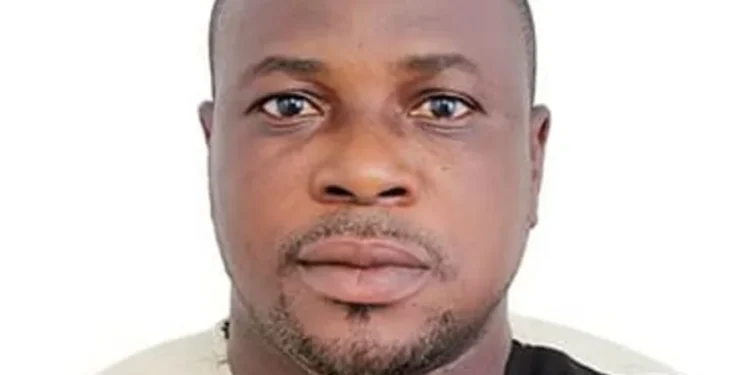Illegal mining in Ghana, commonly referred to as galamsey, continues to devastate the country’s rivers and streams.
Investigative journalist Donkor Erastus Asare known for his extensive reporting on the environmental consequences of galamsey, recently shared alarming insights from his latest rounds monitoring the fight against illegal mining. Asare observations revealed a worsening situation, with increased pollution in rivers and greater impunity among illegal miners. In this report, we delve into his findings, highlighting the dire state of water bodies such as the Tano, Ankobra, Pra, Brim, and Ofin Rivers.
Asare’s latest observations pointed to severe pollution in the Ankobra River, which has grown worse over time. He recalled that earlier, there was noticeable pollution, but now the situation has deteriorated to the point where the water is visibly thicker. This increased turbidity not only threatens aquatic life but also poses a serious risk to human health. The drying up of riverbanks further exacerbates the problem. He reiterated; “You see the drying up of the banks of the rivers, especially the Tano.’’ The destructive effects of illegal mining have led to the depletion of riverbanks, worsening erosion, and reducing the rivers’ capacity to support ecosystems and human livelihoods.
Illegal Miners Along the Tano River
These miners have established themselves along the riverbank and are washing gold residue directly into the river.
“There are some Chinese miners lined along the Tano River… who currently pitched their washing [bins] along the river, and they are washing residue directly into the Tano.”
Donkor Erastus Asare Investigative journalist
The situation is so dire that even as he speaks, illegal miners are still operating, contributing to the river’s pollution.
“You go to Prestea, under the bridge, there are adjoining streams where people are sitting on it with Samsung machines, a number of them polluting it from that end.”
Donkor Erastus Asare Investigative journalist
Illegal mining activities are rampant in other regions as well, including the eastern region. He noted; “When you go to the Brim in the Eastern Region, Atusino, where we flew the drone recently, we found a lot of champagne machines sitting on the Brim at various points.”
The pollution of the Pra River is similarly alarming, with miners operating without any regard for the law. Asare shared, “There are miners who are there, some of them with champagne machines on the river itself at Chifu Kotochi, Chifu Otemokwa Old Town. They are still mining along the river and directly washing their residue into the river.” The increasing turbidity of these rivers, particularly the Pra, Ankobra, and Tano, has not gone unnoticed. According to the Ghana Water Company, the turbidity levels continue to rise as illegal mining persists.
“The turbidity, according to the Ghana Water Company, is still going up because you could see the water getting thicker, and the banks almost drying up at certain points.”
Donkor Erastus Asare Investigative journalist
The pollution of water bodies has reached an alarming level, and yet the miners seem unconcerned. Asare observed a growing impunity among those involved in illegal mining, who often continue their operations without fear of repercussions. He pointed out; “Almost every place that we went this time around is worse, and the impunity now is deeper because now people don’t care.”
Even in areas like Abumpe Adeshia, where farmers have been protesting, miners continue to operate openly.
Public Perception and Health Concerns
One of the major challenges in addressing this environmental disaster is the miners’ perception of their activities. Asare’s revealed that many of them do not believe that illegal mining poses any significant health risks.
“One of them told me, no, they don’t think that’s the case. As for them, there are no poisonous metals in the water where they are working. They even told me that there are people who have been mining and are now over 100 years old, still alive, and not dead.”
Donkor Erastus Asare Investigative journalist
This lack of awareness about the long-term health consequences of mining activities compounds the problem. Asare noted that the effects of heavy metals in the water may take years to manifest in diseases such as liver or kidney problems, making it difficult for people to connect the pollution to public health issues. The environmental degradation caused by illegal mining is worsening, and Asare’s reports from the field suggest that there is little hope for improvement shortly. He concluded with a grim assessment: “It’s getting worse and worse and worse.” The pollution of Ghana’s rivers is not only destroying ecosystems but also threatening the health and livelihoods of communities that depend on these water bodies. If immediate action is not taken to address this growing crisis, the long-term consequences for both the environment and public health will be catastrophic. The fight against illegal mining in Ghana must be intensified, and public education on the dangers of water pollution must become a priority to prevent further damage.
READ ALSO; Stonebwoy to Pursue Master of Arts in International Relations, Diplomacy























